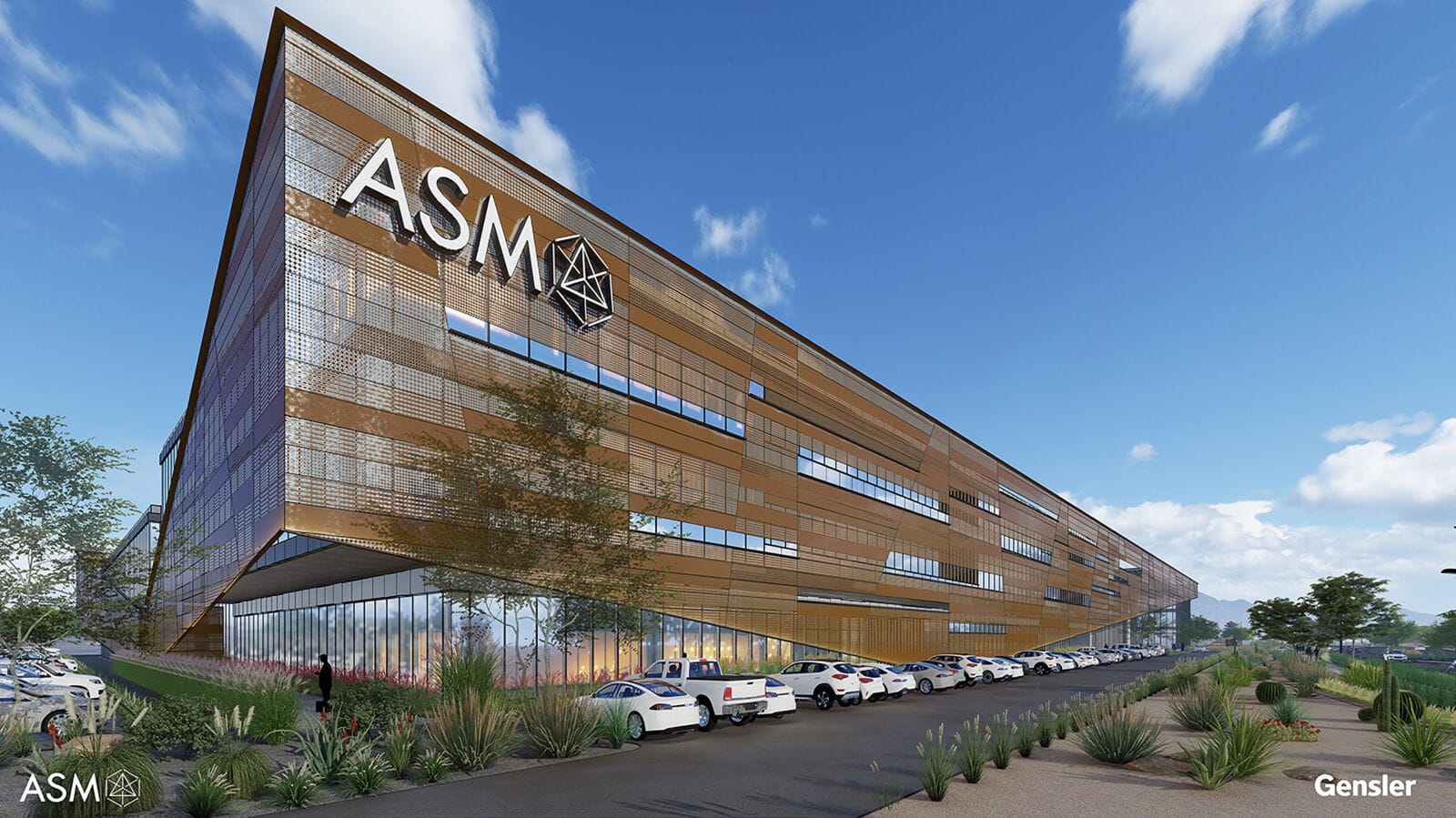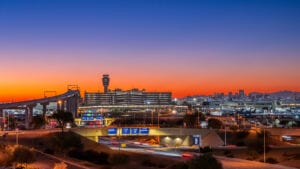During her 2023 International State of the State address, Gov. Katie Hobbs highlighted Arizona’s No. 1 national ranking in foreign direct investment (FDI) for the second year in a row, with the state attracting nearly $32 billion of investment from international companies in 2022. Some of the businesses contributing to that total include LG Energy Solution, XNRGY Climate Systems, Chang Chun Group, Sunlit Chemical, Nestle and TSMC’s doubling down in North Phoenix.
“We only expect this success to continue as Arizona’s international profile and reach grows,” Hobbs says during her speech. “News is getting out about what we have to offer.”
READ MORE: How Arizona’s semiconductor industry benefits from policy, partnerships
The Grand Canyon State has not always been a magnet for foreign direct investment, explains Chris Camacho, president and CEO of Greater Phoenix Economic Council (GPEC).
“If you go back to 2005, we were seeing about 150 companies evaluating our market, and about 5% of those would’ve been international projects,” he says. “When I look at our numbers today, we have 290 active projects, and a third of our pipeline is international.”
The growth of FDI can be seen in flight data, according to Alexandria Van Haren, air service development manager for Phoenix Sky Harbor International Airport. As of March 2023, the airport served 141 destinations including 23 international markets, “which was the most we’ve ever had,” she says.
“Asia service has long been a priority and is even more so now with the growth of FDI in our region,” Van Haren continues. “Along with the semiconductor investment from both TSMC and Intel, there are hundreds of international companies within the supply chain that come from both Europe and Asia. We have been working with our business community, economic development entities and City [of Phoenix] leadership to continue to advocate the airlines for nonstop service.”
Even though much of the increased FDI today comes from Asia, Camacho says that particular market had little interest in Arizona 20 years ago. Sharon Harper, president, CEO and co-founder of Plaza Companies, adds that GPEC’s International Leadership Council — which she is the chair of — was established because many in the economic development community knew that growing the amount of FDI would be beneficial to the region.
“We felt like Arizona offered so much to the world in terms of business opportunities, but that we weren’t well known,” she continues. “When you’re making investment decisions from other places in the world, you think of New York, Los Angeles or San Francisco. Part of this effort was to show why Greater Phoenix is so distinguished in terms of what we can offer companies.”
Growing profile
Thomas Maynard, senior vice president of business development for GPEC, says that even though he still starts some of his conversations explaining that Arizona is located between California and Texas, Phoenix is rising on the international stage.
“If we go anywhere in Asia and mention that TSMC has a big facility in Arizona, that might have more brand recognition than the Grand Canyon in those markets,” he says. “We’re also on the map for hosting these mega events like the Super Bowl, especially as the NFL grows its global audience. Those are a big positive in terms of awareness and marketing.”
Once an international company is looking at Greater Phoenix as a potential place to locate, it evaluates similar metrics that a U.S.-based business does — the tax and regulatory environment, labor force and existing infrastructure, among others. Organizations such as GPEC have to understand the communication styles of different cultures to best deliver this information, but the biggest distinction between international and domestic business attraction happens after the decision to come to Arizona has been made.
“There’s an immersion element of how we help with things like identifying schools, neighborhoods and the retail base that aligns with the interests of where [workers from the company’s home country are] from,” Camacho says.
In other words, attracting international businesses is harder than domestic ones and requires more partners, according to Maynard.
“The projects take longer when a company is deciding to come all the way across the pond to the U.S.,” he says. “But the payoff is worth it because it diversifies our economy, which allows us to grow from multiple angles. And, in a more philosophical way, we can make sure that Greater Phoenix blossoms into a world class city, which I think we’re striving to be. A big piece of that is being on the international stage.”
Foreign direct investment fallacies
Large international companies making significant investments in Arizona help to diversify and grow the state’s economy, create jobs and attract other related businesses. There are, however, some common misconceptions related to the effect investment from foreign businesses has on the community.
“There’s this perception out there that of the thousands of people that TSMC is going to hire, it’s going to bring the workers they need over from Taiwan and Asia,” Maynard says. “That’s not the case. All these international companies coming to Arizona are going to hire locally.”
Even if a company wanted to import large amounts of foreign workers, Maynard continues, the constraints on the backlogged federal immigration system would clash with its priority to get a factory running. Sometimes, Camacho adds, employees from a company’s country of origin may come to Arizona in the early stages of a project to start operationalizing the site before moving back home or onto the next project somewhere else around the world.
Still, some foreign workers are likely to make Arizona their new home, and Harper highlights the benefit that diversity has on the region.
“We should emphasize how foreign companies, whether they’re from Taiwan, Mexico, Canada or France, enrich our culture,” she says. “The net effect of companies coming to Arizona is increasing job opportunities and tax dollars, but the cultural aspects shouldn’t be underestimated.”




